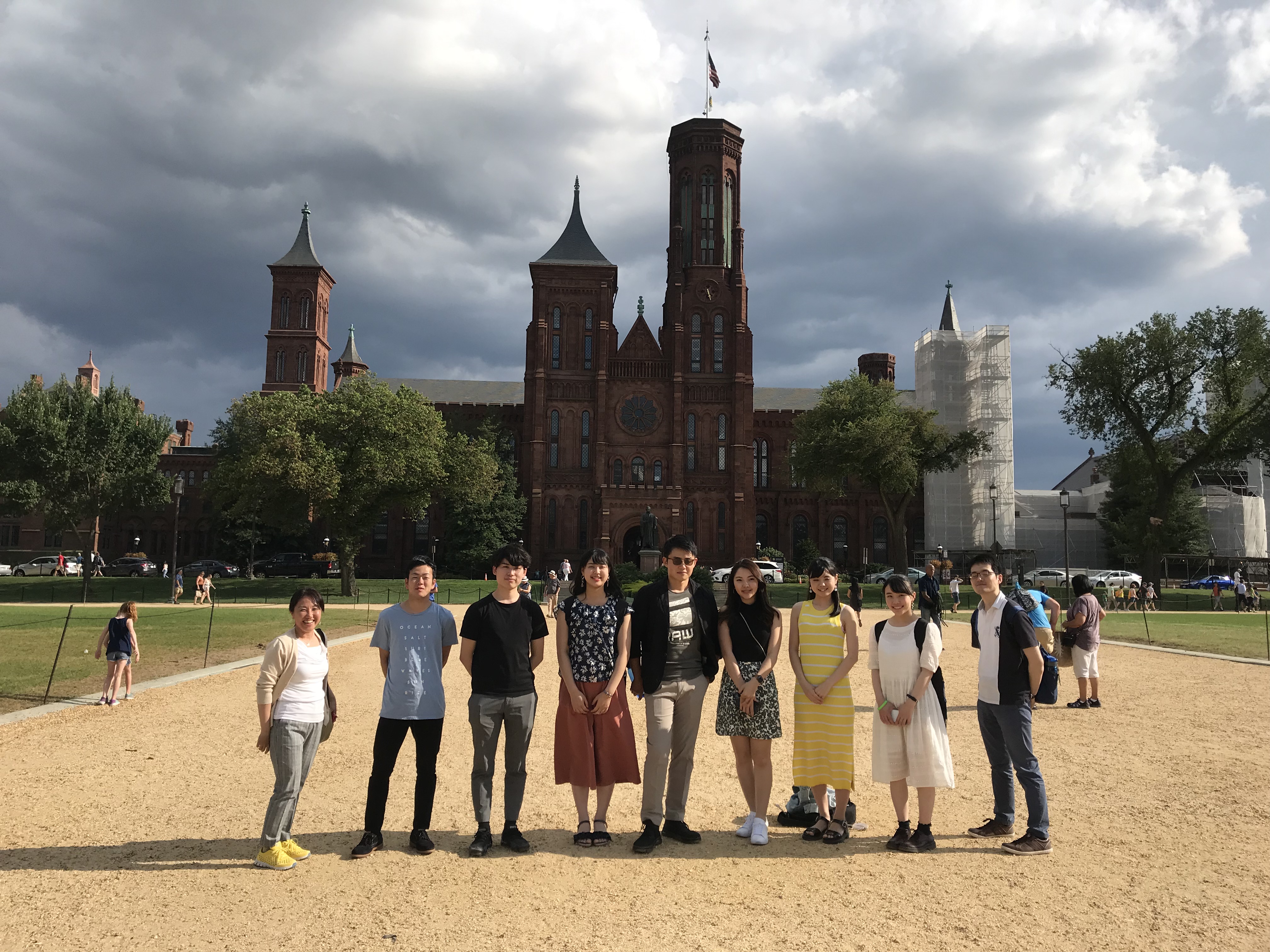From Tohoku, Japan to the streets of Foggy Bottom, eight deserving Japanese students spent two weeks on campus this summer for an immersive cultural experience – the Sugai Intensive English and Leadership Program, a part of GW’s Language Center. This program—now in its second year—provides educational and cultural experiences in the United States for Japanese university students affected by the Great East Japan Earthquake of 2011. Generously funded by the Sugai family, the program offers students the opportunity to take part in classes and tours led by Japanese-speaking faculty and alumni that enhance their communication and leadership skills while building an understanding of cultural differences. A highlight of the program this year was a behind-the-scenes tour of the Smithsonian National Museum of Natural History by alumna Junko Chinen, CCAS MA ’98, the Chief of Exhibit Development and Project Management at the museum.
Sayaka Sugawara, a student in this year’s program, is a scholarship recipient at her university in Japan who was recommended to the program by one of her scholarship advisors. “I was so happy [when I found out I was accepted] because this program included a lot of classes and tours,” reflects Sugawara.
Sugawara notes that the English classes in the program differ from their classes in Japan. “I love the classes here because in Japan we also have English classes, but it’s learning grammar and pronunciation,” Sugawara comments. “But here, I feel like I’m learning something in English and we have a lot of [student and faculty] tutors too, so I feel like I am communicating with Americans and getting to know about their culture through English.”
The program gives students a global perspective when it comes to politics, history, and lifestyle – and opens their eyes to important issues in American culture. “I’ve heard about a lot of interesting topics, which are not discussed in Japan,” Sugawara explains. “Especially LGBT – we know the word in Japan, but it’s not that common compared to here. I’ve never met someone actually studying that in college, so I was excited to learn about it.”
Above all, students gain more than just an education through the program – they gain confidence-boosting experiences that influence their futures. For Sugawara, that means female empowerment. “In Japan, women still don’t always work like men, so I sometimes kind of feel like giving up. But women [in the United States] are more aggressive and strong, so I feel like now I can do whatever I want and feel more challenged, so that influenced my life view.”
Thanks to the generosity of GW donors, the Sugai scholars returned to Japan in August with newfound global and cultural perspectives, preparing them for life in an increasingly interconnected world.
-Carli Halper



